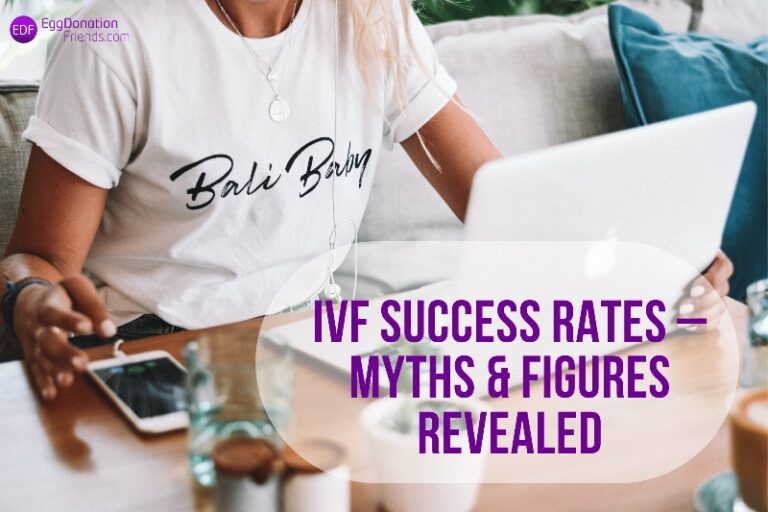The establishment of a family thanks to the help of a donor is a particular challenge for infertile families. It is connected with the necessity of dealing with numerous moral dilemmas and emotional difficulties. A decision faced by the couple is not an easy one. A psychologist, Dorota Gawlikowska, from the InviMed fertility clinic in Warsaw, Poland, suggests things to consider before you make that decision.
The dilemma of using the reproductive cell of a donor is usually faced by persons who have a long way through an illness behind them. They have undergone numerous diagnostic tests, and sometimes also treatment which did not bring about the expected results. A decision to make an attempt to give birth to a child thanks to the semen of another man or the egg of another woman is another challenge which they have not been prepared for. It emerges at a time when they are already exhausted and can hardly keep up their faith that they will become parents one day. The second group is constituted of those patients who immediately, straight at the beginning of their road, receive this difficult information that the only chance to have the longed-for baby is to use the help of third parties. They must not only confront the fact of infertility but also take a decision in issues which seemed so abstract not so long ago.
Before you make a decision
If the doctor suggests that you should use donated gametes, it is a good idea to give yourself some time to think and thoroughly analyze the situation. Already at this point, we must realize that the purpose is not only getting pregnant but the creation of a family which should be established on strong foundations. The basis here is the certainty of both partners and their acceptance of the method by which they establish the family. That is why it is so important to act without rush. The decision must be well-thought-over, it is not good to take potluck, hoping that “it will work out somehow”.
The first and the most important stage of taking a decision on using the help of a donor should be giving yourself time for deep reflection. My Patients put it best at one point: “We don’t want to taken a decision about egg donation just yet. If we did that, we would not be enjoying this pregnancy, it would be a disaster for us, rather than happiness and joy, because today we don’t desire our baby yet”. A decision to use the help of a donor should be preceded by a period of mourning after people’s own, genetic child which the couple may not have. This is a difficult, but necessary stage, because the majority of us, while selecting our life partner, look at him/her as the future parent of our common child, and think: “He or she will be a person with whom I will have a child which will be similar to us. Our John will probably have blond hair, he will be rather short, he may not be able to draw well, but he should have a good musical ear, like everyone in our family”. And suddenly it turns out that we have to say goodbye to our visions, imagination and dreams. The child we can have will not be so similar to us. This is connected with pain and sadness, often being angry at life and fate that it has given us such a difficult future. You have to live through this.
That is why couples who consider the use of the option of gamete donation are suggested to undergo psychological consultation. Stories of our patients show how difficult and important it is to deal with the emotions and concerns that often come about at the stage of the decision of parenthood, thanks to donors, and how important it might be to have a psychologist’s support at such times. A specialist, through conversation, may help you to make a decision which will influence your future, happy life.
To learn more about the egg donation programme at InviMed Fertility Clinics check www.invimed.co.uk
InviMed Fertility clinics represent the best expertise and experience in Poland. We are part of Medicover, a Swedish-owned medical group and the largest private healthcare provider in Central and Eastern Europe.
Egg donation is our specialisation. Thanks to our catalogue of anonymous donors, who have shared detailed information about themselves, patients can easily find their preferred donor. We know that time is crucial, that’s why patients never need to wait. With our streamlined programme and 2 visits to Poland, the total treatment time is 1 to 3 months.
You might be interested in: How much does it cost for donor eggs IVF?






